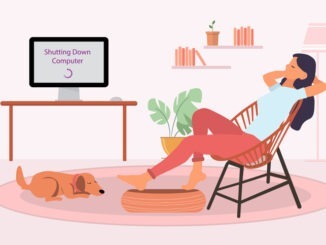
Martin Eames has found optimism in the dealer channel this year – except for corporate players – and sees increasing opportunities for dealers in selling sustainable products
ptimism has been in short supply in O the office supplies sector in the past couple of years – much like many other sectors – but, since the turn of the year, and the relaxation of pandemic restrictions, dealers and manufacturers alike are, in general, looking forward with optimism.
This is good news for Martin Eames, chief executive of Product Promotion Services, which provides field sales support to branded manufacturers, as it means more of them are looking to engage his company as they seek to increase sales. “We are beginning to see manufacturers coming out with more initiatives and looking at developments of their ranges to meet the requirements for smaller purchase units and more design-orientated products,” he says.
This optimism is reflected in the wider dealer market, he adds. “From September last year, there were the beginnings of some optimism in the market, but that got completely knocked back by Omicron in December, which was a difficult month,” he says. “But things bounced back in January and, since then, there has been a significant mood of optimism and generally dealers have been more positive and engaged in initiatives than they have for the previous two years. Most dealers are doing reasonably well now. The product mix is different from pre-COVID, but sales are coming back up and they are generally generating higher margins.”
However, there are some areas that are, notably, bucking that trend, especially London. “If you go up to the City on a weekday it is virtually empty; the big corporates in the City and Canary Wharf areas simply haven’t returned,” he says. “There has been an increase in the number of people going back to the office since January, but it is nothing like it was pre-COVID, and it is never going to go back to that. You’ll probably see the same thing in places like Birmingham; companies are going to make significant savings in term of space costs as employees don’t want to commute and that is going to have a big impact on dealers who service that market.
“We think that, during COVID, across the country most dealers’ business dropped by at least 30% compared to 2019, but dealers focused on the central London market saw drops of up to 80%, which is not sustainable. Most dealers survived because of the furlough scheme.
“Now, outside London, most dealers are trading broadly at 2019 levels; however, in London, they are still way down on that as the customers haven’t returned, and aren’t going to. We expect to see more consolidation in the dealer community in London; some have gone out of business, and some have sold out – and there will be more of that.”
Martin adds that it has affected the big contract or ‘big box’ dealers most, as their customer base mostly comprised large corporates. “They have had catastrophic sales declines because their market has evaporated as they have gone to work from home,” he says. “The big beneficiary has been Amazon. When employees went to work from home, traditional dealers said to businesses at the beginning of COVID ‘We can’t deliver to people’s homes’ so companies have gone to their people and said, ‘If you need products, buy it where you can on expenses,’ and they have.
PLASTIC USE Another change affecting the sector is the growing impact of sustainability issues, including the recent introduction of the plastic packaging tax, which encourages manufacturers and businesses to use less plastic or face additional charges.
However, Martin believes that the sector is ready for it, with most manufacturers already having taken action to reduce plastic use. “I don’t think for one moment the plastic packaging tax will have any demonstrable impact on cost of product,” he says. “I think it will, as it is designed to do, result in some behavioural change. Like a lot of these initiatives, it looks good on paper, but how it is executed is another matter – although I think it will be positive, and encourage change.”
As the chair of the BOSS Single Use Plastics Forum, Martin has been monitoring changes in the market closely. “Pre-COVID, there was a significant move to plastic reduction largely because of knowledge of the damage plastic was doing to the oceans,” he says.
The forum has helped to define a set of criteria on product and packaging resulting in manufacturers being required to complete data files to provide information to dealers and consumers as to the plastic content of the products they are purchasing. “It has taken quite a time to get there – it took quite a bit of time to get consensus across the industry.”
But, having achieved this, the forum has extended its remit into general environmental issues, and has been renamed the BOSS Environmental Forum to reflect this. “There is consensus among manufacturers and dealers that, post-COVID, the environment and sustainability will become key issues for consumers, and it won’t go away. We want to ensure that BOSS provides an up-to-date information source and a platform for the industry to develop its sustainability credentials, keeping ahead of legislation because the direction of travel is clear.”
Indeed, of those who are returning to the office, many are younger employees. “It is the 40+ people with long commutes who don’t want to go back,” says Martin, and they are the people who are most engaged with environmental and sustainability issues. “We think there will be growing pressure – in this industry and the world at large – to have knowledge of the sustainability and environmental credentials of products and services.
As always, change brings opportunities for those who are alert to them, and Martin believes the sector, especially smaller, nimbler dealers, are well-placed to exploit them.


Be the first to comment